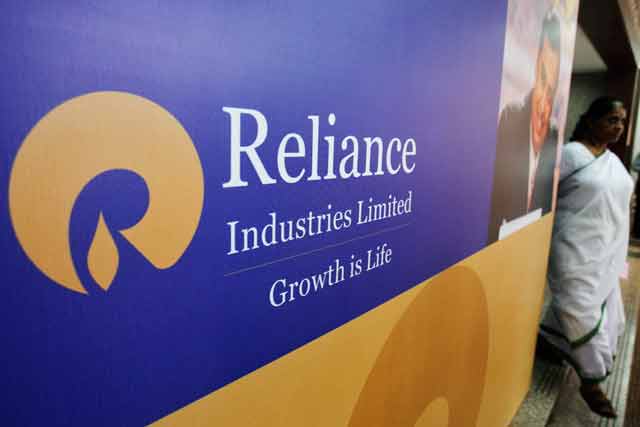Mumbai: In one of its biggest penalties for non-disclosure of a key earnings ratio, Sebi today imposed a penalty of Rs 13 crore on corporate behemoth Reliance Industries Ltd (RIL) for violation of the Listing Agreement.
The order follows a probe by the capital markets regulator in an over seven-year old case involving alleged irregularities in issuance of 12 crore warrants by Mukesh Ambani-led RIL to its promoters entitling its holders to subscribe to equivalent number of equity shares of RIL.
It was alleged that this issuance in April 2007 had resulted in diluting the pre-issue paid-up equity share capital of RIL, but the company repeatedly failed to disclose a key earnings ratio for as many as six quarters.
Subsequently, Sebi began adjudication proceedings to probe the alleged violation of relevant clauses of the Listing Agreement and the Securities Contracts (Regulation) Act (SCRA) for not disclosing to stock exchanges the Diluted Earnings Per Share (DEPS) as prescribed for the quarterly and annual disclosures, the regulator said in its 15-page order.
A show-cause notice was served on RIL in February last year, listing out allegations levelled against the company. After looking into the company’s reply and further probe into the matter, Sebi said that “EPS (Basic or Diluted) is a vital factor or one of the fundamental tools for the investors while arriving at decision to continue or invest in the shares of a particular company.
The regulator said further that RIL “under an obligation to disclose separately the DEPS for the quarters ended June 2007, September 2007, December 2007, March 2008, June 2008 and September 2008, which the noticee had failed to do so”.
“In view of aforesaid observations, facts and records of the case”, Sebi said, the company was in violation of the relevant provisions of the Listing Agreement and the SCRA and therefore it was liable to a penalty.
Noting that a specific quantum of any direct or indirect unfair gain made by RIL and the loss caused to the investors were not available on records, Sebi said that “the fact cannot be ignored that millions of shareholders/investors were deprived of correct disclosures about DEPS.”
“As regards to the repetitive nature of default, as observed above that the Noticee had failed to disclose the DEPS repetitively for the six quarters. Hence, an appropriate penalty needs to be imposed upon the Noticee, taking into account the aforesaid gravity of the violations committed,” Sebi said.
Accordingly, the regulator has decided to impose a penalty of Rs one crore for violation of Listing Agreement and of another Rs 12 crore for violating the SCRA provision.
RIL has been asked to pay the total amount of Rs 13 crore within 45 days through a demand draft in favour of ‘SEBI - Penalties Remittable to Government of India’.
Sebi said that “EPS is considered as the single most important vehicle in determining a share’s price. “It is key driver of share price and used as a barometer to gauge a company’s profitability per unit of shareholder ownership. It is not out of place to mention that the noticee company has millions of shareholders and the prospective investors who were also deprived of correct disclosures in relation to DEPS in respective quarterly financial results…”
The regulator further said RIL’s Annual report for the year 2008-09 contained a disclosure regarding issue of 12 crores warrants on preferential basis on April 12, 2007 to entities in the promoter group entitling them to acquire equivalent number of fully paid up equity shares.
RIL had also disclosed that the warrant holders had applied for and were allotted 12 crores shares during the year 2008-09. It was also observed that RIL had outstanding share warrants issued on April 2007 which got converted to equity shares only during the third quarter ended December 2008 of
Financial Year 2008-09.
Corresponding to the conversion of the warrants into shares, it was observed that there was increase in the paid - up share capital of RIL.
In terms of Clause 41 of the listing agreement, the listed companies are required to disclose both Basic and DEPS in the quarterly financial statements filed with stock exchanges. As the RIL had outstanding share warrants issued in April 2007 which got converted into equity shares only during
the third quarter of financial year 2008-09, RIL should have disclosed Basic and DEPS in the filings for the quarters ended June 2007, September 2007, December 2007, March 2008, June 2008 and September 2008, Sebi said.
“However, on scrutiny of quarterly financial statements of RIL filed with NSE during the quarter ended June 2007 to September 2008, it was observed that RIL did not disclose separately DEPS in quarterly financial statements for the aforesaid period and contained the same figures for Basic and DEPS,” it added.
It was alleged in the show-cause notice that RIL did not disclose the DEPS in Quarterly Financial Results despite the existence of share warrants and therefore it violated Clause 41 of the Listing Agreement, as also the Section 21 of SCRA.
In reply to Sebi’s notice, RIL on February 25, 2013 sought certain information /documents from the regulator, including whether an investigation was conducted prior to the issuance of the notice, the basis fo9r conducting an investigation against it, and the internal notes and legal opinion, if
any, received by the regulator in the matter.
RIL also sought an inspection of the documents and it was informed by Sebi on March 7, 2013 that “all relevant documents relied upon to issue the SCN, were already provided and it was also stated that a copy of complaint on the basis of which the allegations are levelled, has been forwarded to the Chairman, Audit Committee of the Noticee”.
PTI
Disclosure: Network 18, which publishes Firstpost and Firstbiz, is now part of the Reliance Group
)